Customer Services
Copyright © 2025 Desertcart Holdings Limited


desertcart.com: The Philosophy Book (DK Big Ideas): 9780744091960: DK: Books Review: Easy to get hooked with. - Although I can’t speak to the nature of the e-book on any device, The Philosophy Book: Big Ideas Simply Explained is a very entertaining introduction to various historically significant philosophical minds. It includes images as well as a light amount of biographical information which is important for gathering the context through which these people were developing their thoughts. The intention of the book is be an overview of an entire subject since its inception in ancient times, so personally I find it difficult to fault for being brief considering how much content it aims to tackle. The segregation of time from section to section is fine given, once again, what a large time-span the book seeks to cover. In addition, this book is tailored to be appealing to youths who probably aren’t yet enabled to take a formalized philosophy course so there’s little cause to make it hyper-informative of individuals or get into the weeds of specific time periods. It is not a history book after all. If someone wants to learn more about a specific philosopher’s ideas this book provides a litany of paths to go down and without a publishing like this, it’s hard to have a significant awareness of the breadth of what is out there. However, there are some things it seems like the book could benefit from. Dedicated passages describing concepts of empiricism and rationalism would be a big plus since a lot of philosophers consider themselves to be decidedly one or the other. Without defining these terms the book’s intended audience, being people who are potentially reading their first book about philosophy, might come to feel like they were in the dark if they learn these things later. As well as this a page or two dedicated to the various formations of logic-based arguments you can make would have been instructive since that is where most meaningful philosophical dialogue is derived from. One more thing that may have been worthwhile would be a page indicating the various ethical theories in brief definition and who was able to first formally publish works regarding them such as utilitarianism, feminism, Kantian ethics, etc. It also needs to detail that although science does explain many things about the universe it cannot begin to explain everything, such as life after death or the nature of “God”. This is especially relevant to any of the stoic philosophers since their conception of God was pantheistic and radically different to any sort of self-centered human looking creation that many people today are inclined to conceptualize it as. All things considered the book is highly informative and more than intriguing enough to get someone more interested in the original subject. It could use more expansive discussion of what many of the cornerstones of basic philosophy courses are. It also quite crudely brushes by conceptions of “God” and takes no time describing the basics of forming an argument. I still am giving it the highest rating just because the interest it generates overwhelms all other deficiencies in it, especially given most people don’t receive a philosophy class in high-school and in terms of daily life it’s definitely critical to be able to contemplate things on a deeper level. Review: A good basis for understanding philosophy - This book is a great primer for anyone interested in delving into philosophy. I've read a fair amount of classic philosophical texts but realize it's often hard to understand the terminology or references that philosophers make. This book is great because it succinctly explains basic concepts of many thinkers and traditions and explains how they fit in the timeline of ideas, making things much more accessible. A friend told me he was interested in philosophy but didn't know where to start so I gave him this book. He got through it relatively quickly and said it greatly strengthened his base understanding of the philosophical tradition. It's really a great resource for getting an overview before diving into deeper concepts. I have more confidence now that someday I'll successfully tackle Hegel to impress a dinner party: the ultimate goal of philosophy.

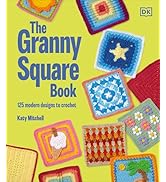

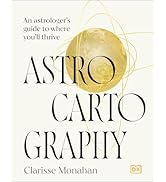


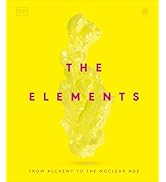
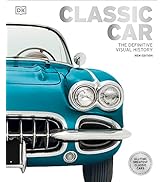
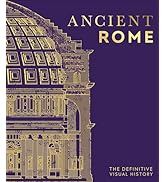
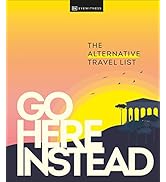





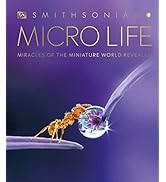

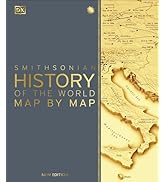

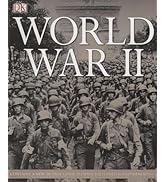
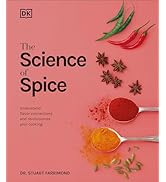
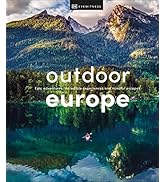


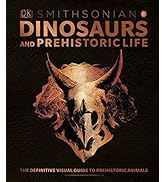

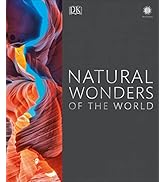

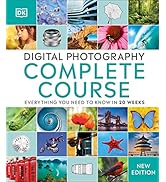



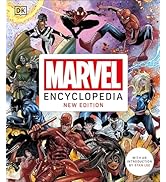

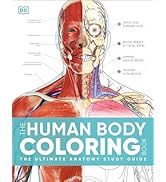

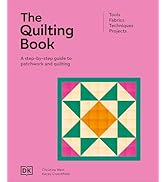

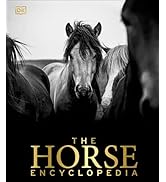
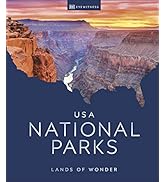
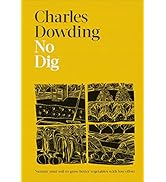
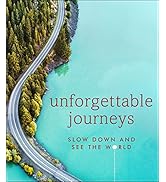


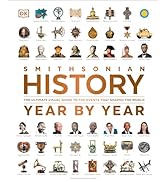
| Best Sellers Rank | #28,174 in Books ( See Top 100 in Books ) #4 in Philosophy Reference (Books) #16 in Individual Philosophers (Books) #1,450 in Reference (Books) |
| Customer Reviews | 4.6 4.6 out of 5 stars (3,978) |
| Dimensions | 7.94 x 1.06 x 9.44 inches |
| Edition | 2nd |
| ISBN-10 | 0744091969 |
| ISBN-13 | 978-0744091960 |
| Item Weight | 2.31 pounds |
| Language | English |
| Print length | 360 pages |
| Publication date | September 3, 2024 |
| Publisher | DK |
J**G
Easy to get hooked with.
Although I can’t speak to the nature of the e-book on any device, The Philosophy Book: Big Ideas Simply Explained is a very entertaining introduction to various historically significant philosophical minds. It includes images as well as a light amount of biographical information which is important for gathering the context through which these people were developing their thoughts. The intention of the book is be an overview of an entire subject since its inception in ancient times, so personally I find it difficult to fault for being brief considering how much content it aims to tackle. The segregation of time from section to section is fine given, once again, what a large time-span the book seeks to cover. In addition, this book is tailored to be appealing to youths who probably aren’t yet enabled to take a formalized philosophy course so there’s little cause to make it hyper-informative of individuals or get into the weeds of specific time periods. It is not a history book after all. If someone wants to learn more about a specific philosopher’s ideas this book provides a litany of paths to go down and without a publishing like this, it’s hard to have a significant awareness of the breadth of what is out there. However, there are some things it seems like the book could benefit from. Dedicated passages describing concepts of empiricism and rationalism would be a big plus since a lot of philosophers consider themselves to be decidedly one or the other. Without defining these terms the book’s intended audience, being people who are potentially reading their first book about philosophy, might come to feel like they were in the dark if they learn these things later. As well as this a page or two dedicated to the various formations of logic-based arguments you can make would have been instructive since that is where most meaningful philosophical dialogue is derived from. One more thing that may have been worthwhile would be a page indicating the various ethical theories in brief definition and who was able to first formally publish works regarding them such as utilitarianism, feminism, Kantian ethics, etc. It also needs to detail that although science does explain many things about the universe it cannot begin to explain everything, such as life after death or the nature of “God”. This is especially relevant to any of the stoic philosophers since their conception of God was pantheistic and radically different to any sort of self-centered human looking creation that many people today are inclined to conceptualize it as. All things considered the book is highly informative and more than intriguing enough to get someone more interested in the original subject. It could use more expansive discussion of what many of the cornerstones of basic philosophy courses are. It also quite crudely brushes by conceptions of “God” and takes no time describing the basics of forming an argument. I still am giving it the highest rating just because the interest it generates overwhelms all other deficiencies in it, especially given most people don’t receive a philosophy class in high-school and in terms of daily life it’s definitely critical to be able to contemplate things on a deeper level.
K**B
A good basis for understanding philosophy
This book is a great primer for anyone interested in delving into philosophy. I've read a fair amount of classic philosophical texts but realize it's often hard to understand the terminology or references that philosophers make. This book is great because it succinctly explains basic concepts of many thinkers and traditions and explains how they fit in the timeline of ideas, making things much more accessible. A friend told me he was interested in philosophy but didn't know where to start so I gave him this book. He got through it relatively quickly and said it greatly strengthened his base understanding of the philosophical tradition. It's really a great resource for getting an overview before diving into deeper concepts. I have more confidence now that someday I'll successfully tackle Hegel to impress a dinner party: the ultimate goal of philosophy.
H**H
Better than expected.
Bought without nearly any photos to base this purchase on and I’m glad I did. Who should buy this? ✅ Students in seminary ✅ College Students Studying Liberal Arts ✅ High School English or Social Studies Teachers ✅ Anyone curious about worldviews, life philosophies, and adaptations of thinking My experience: Awesome book for my new Christian Apologetics courses. It would have also been a benefit for me while teaching 11th & 12th grade English for American and British history. It would have better helped me to frame the units around the framework or lens people saw through during specific eras.
J**N
Philosophy 101 made easy. It's a great place to start for philosophy neophytes.
This sweeping overview of philosophy walks us through history in chronological order, dedicating a couple pages to our most influential thinkers. It’s an ideal starting point for anyone interested in the topic. The lucid prose spares us from impenetrable academic jargon of the Stanford Encyclopedia; the illustrations and quotes add visual appeal to compensate for what might be considered dry topics; and each section contains a philosopher biography as well as historical context to help orient us to their work. The authors provide adequate synopsis to explain key principles—just enough to map the field and pique interest. This is Philosophy 101. It’s extremely clear and succinct, yet it still captures the essence of a host of meaningful ideas. After reading it, I had a pretty good idea where to focus my future dives into philosophy.
E**S
Excellent book ~ Everything is clearly spelled out and heavily illustrated
This book does an outstanding job of breaking down the history of philosophy into language that everyone can understand. Nothing could be more important than knowing how mankind has evolved through the ages, and the details of our thought process and ideology are clearly spelled out in this heavily illustrated text. 'The Philosophy Book' starts out with the very earliest of thinkers, and proceeds to cover the subject and its evolution to the present day. It not only explains the history of philosophy, but it delves deeply into the thought processes of the world's greatest thinkers, covering their viewpoints on subjects such as ethics, morality, scientific principles, religion, politics, etc. An understanding of philosophy and its principles is essential to mankinds existence. This masterpiece of a book takes a subject that can be very hard to understand, and breaks it down into bite sized pieces. The use of diagrams, timelines and comprehensive illustrations makes the subject matter much easier to comprehend. I only wish that a book such as this were available when I was in college. At the time, philosophy was a very difficult subject for me to understand. Had this book been in print, I not only would have had a clear understanding of the subject, but I would have enjoyed the learning process as well. Based on my experience with this exceptional volume, I'm eager to submerse myself in some of the other books in this series.
G**A
This series of Big Ideas books by DK is very good. So far I have purchased a number of them and found them all highly informative and easy to read. This volume on philosophy is particularly good, covering all the main philosophers and many of their ideas in a clear, simple language that is not too difficult for any one to understand, and the illustrations and pictures only add to the overall quality of the text. I have learned a lot from this book and would thoroughly recommend it to others. I hope you find my review helpful.
1**B
très bien fait, simple à lire et à comprendre, surtout pour des personnes comme moi toujours pris par le temps (boulot et enfant) - et avec le confinement en ce moment je prend le temps de bien le lire, y compris la notice de ma TV.
P**R
Clearly the product of considerable efforts, this book superbly succeeds in attractively presenting major philosophers and their chief ideas in chronological order from Antiquity to the 21st century. One to six pages are devoted to each philosopher. In addition to a short but significant essay, each of these sections includes: • a ‘context’ box pointing out the applicable philosophical branch and approach as well as main predecessors and followers; • a short biography; • a list of key works; • references to linked thinkers discussed elsewhere in the book; • short quotations in bold script. The colourful and lively lay-out is fully worthy of current technological possibilities. Illustrations are abundant: cartoons, diagrams, photos of paintings or of philosophers’ portraits, etc. The book also includes timelines, a glossary, an index and a ‘directory’ of noteworthy truth-seekers who are not covered in individual sections. This work is warmly recommended to all: those familiar with philosophy will benefit from a unique synthesis and others will be stimulated to further their exploration of the topic.
M**S
Este libro es un buen compendio en inglés de la historia de la filosofía. Es sintético, claro y viene muy bien para tener una idea genérica de los principales pensadores occidentales y orientales también. No se necesita tener un nivel muy alto de inglés para entenderlo y tampoco de filosofía. Ideal para docentes y alumnos no universitarios y para toda aquella persona que esté interesada en tener un primer contacto con nuestra historia del pensamiento.
A**N
Book is great, looks appealing yet has a school / manual kind of feel. The book was to be a present but came bent. What is more, it squished the small box it was packed with so I had to restick seals and reinsert contents - that was a completely different order and meant for a different child. Box and book were not packed with foresight, either by seller or repacking facility. They both ended up smashed around corners and in an embarrassing state
Trustpilot
1 week ago
2 weeks ago